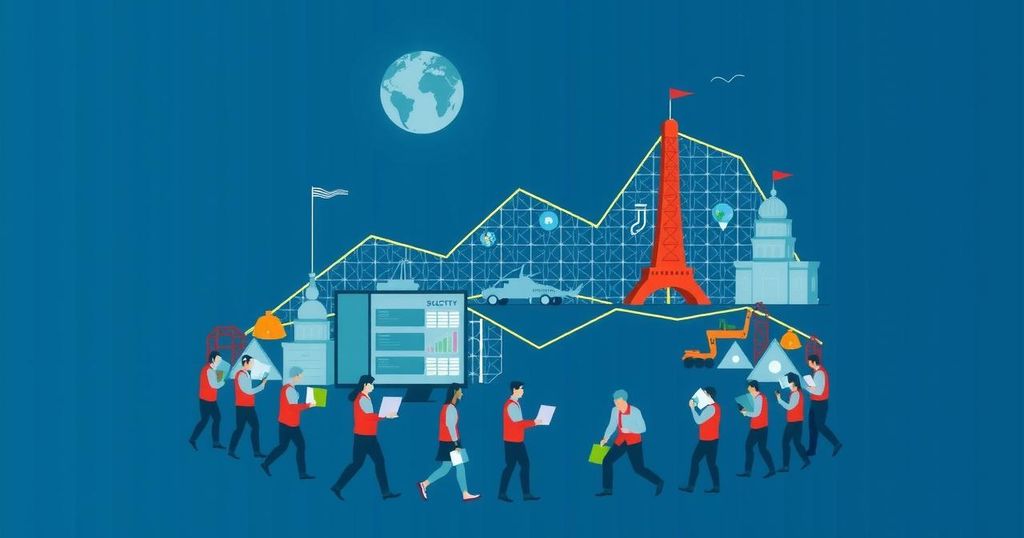World news
AFP, ASIA, AZERBAIJAN, BAKU, BARACK OBAMA, CLIMATE CHANGE, CLIMATE JUSTICE, DONALD TRUMP, ENVIRONMENTAL POLICY, EUROPE, FRANCE, GREENHOUSE GAS EMISSIONS, JOHN PODESTA, NORTH AMERICA, PARIS, PARIS AGREEMENT, PODESTA, POLITICS, UN, UNION OF CONCERNED SCIENTISTS, UNITED STATES, US
Stella Nguyen
0 Comments
US Climate Delegation Active at COP29 Despite Possible Leadership Shift
US climate officials at COP29 remain active despite impending changes in administration. Key discussions focus on climate finance, policies on methane emissions, and reaffirming commitment to international climate goals. Participants emphasize the importance of continued collaboration and the urgency of climate action, regardless of future US leadership.
Despite being in a transitional phase as the Biden administration prepares for a potential shift in climate policy with Donald Trump’s impending return to office, the US climate delegation remained active at COP29 in Baku. John Podesta, Biden’s climate envoy, engaged in multiple discussions and negotiations, emphasizing that the efforts to combat climate change would persist even if federal leadership changes. Discussions included significant topics such as increasing financial aid to assist poorer nations in addressing climate impacts and enhancing their transition to renewable energy sources. Podesta’s focus was to convey that despite uncertainties regarding US federal climate action in the future, the commitment to global climate initiatives within the current administration would continue to be a priority. At a summit on methane emissions, Podesta outlined plans for charging companies for methane leakages, demonstrating a proactive stance in addressing climate issues. Moreover, Ali Zaidi, Biden’s climate adviser, pointed to previous administrations’ efforts, noting how prior US commitments and global financial support for climate action persisted despite political fluctuations. He asserted that the US would remain a crucial participant in the negotiations at COP29, emphasizing the importance of supporting increased climate finance amidst calls for intensified commitments from developed nations. International representatives encouraged collaboration and urged that the outcomes of COP29 should not be overly influenced by the upcoming US political climate, asserting the moral imperative to address climate goals without delay. Overall, the atmosphere at COP29 revealed a strong determination among global delegates to advance climate initiatives and financing, regardless of the looming uncertainties surrounding US policy changes.
The discussions at COP29 in Baku illustrate the complexities of international climate negotiations, particularly in the context of an impending change in US leadership. The United States has historically played a pivotal role in setting climate policy and financing, and the potential shift back to a climate-sceptic administration raises concerns among global partners about future commitments. The conference serves as a critical platform for reinforcing existing climate agreements and strategizing financial support for developing nations, amidst uncertainties tied to US political changes.
In summary, the US climate team’s active participation at COP29, despite potential future shifts in administration, underscores their commitment to international climate initiatives. Through active negotiations and reaffirmed financial commitments, US officials aim to assure global partners that climate action remains a priority. The conference proceedings indicate a broader international consensus on the necessity of cooperation and ambitious outcomes, as delegates work to finalize agreements fostering climate resilience and sustainable energy transitions for vulnerable nations.
Original Source: www.rfi.fr




Post Comment